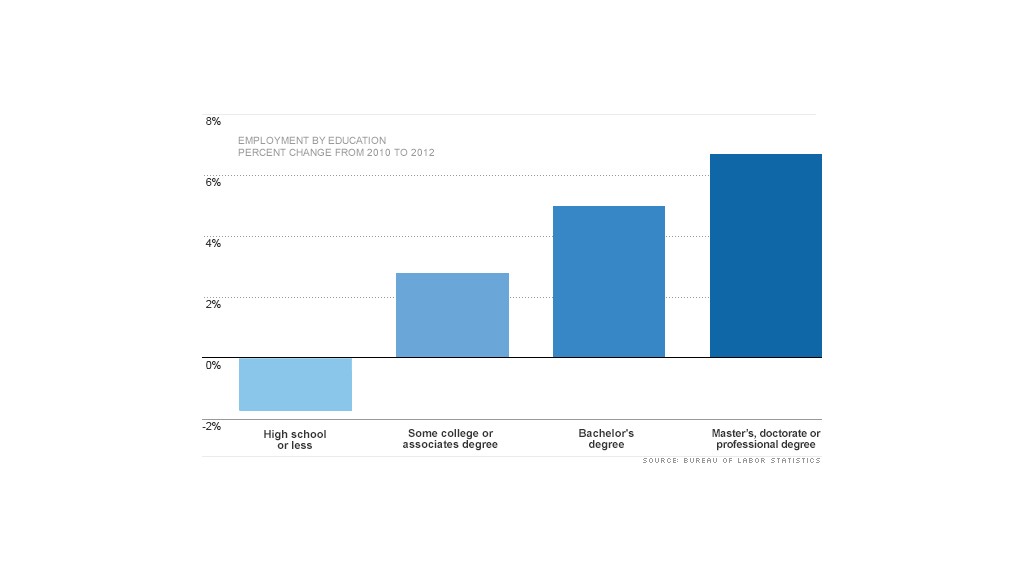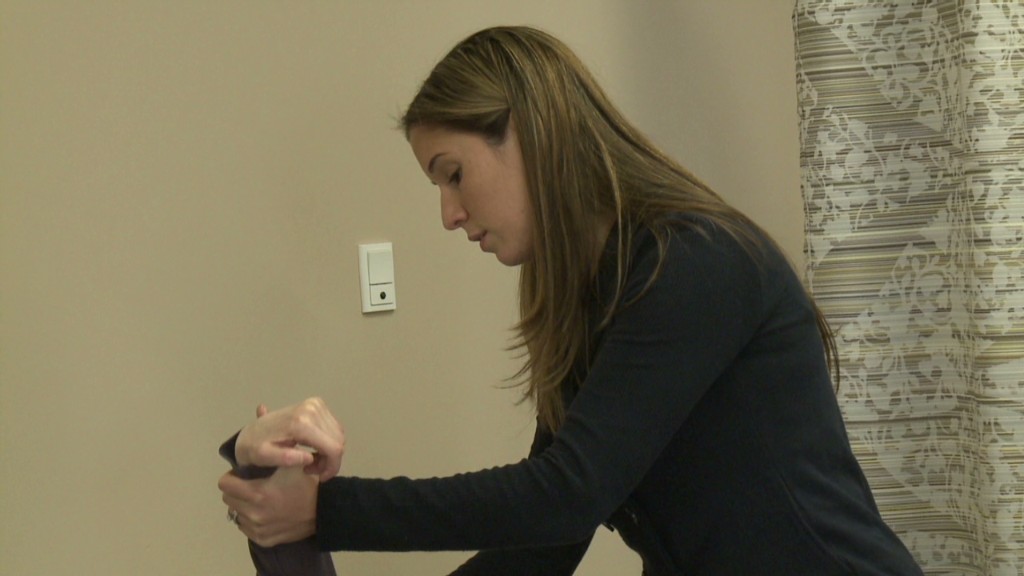
Workers across America are experiencing completely different versions of the jobs recovery, depending on their education level.
The recovery is favoring the college educated, but leaving behind those with a high school diploma or less.
"In the recession and recovery, those with the most education are hurt the least and recover the fastest," said Anthony Carnavale, director of the Georgetown University Center on Education and the Workforce.
Workers with the highest level of education -- including master's, doctorates and professional degrees -- are a relatively small part of the population, yet they're experiencing the fastest employment gains.
About 1.1 million more of them say they had jobs in 2012, compared to the bottom of the job market in 2010 -- a 6.7% gain -- according to Labor Department data.
Related: My master's degree wasn't worth it
Meanwhile, workers with bachelor's degrees -- a much larger group -- have reported 5% employment gains.
That contrasts starkly with workers at the opposite end of the education spectrum, who are not only reporting they have fewer jobs, but are also leaving the workforce in droves.
Those with a high school education or less are a large group, making up 36% of all U.S. workers over age 25. Their job losses started in 2007 and have yet to stop. About 767,000 fewer workers reported having a job in 2012, than they did in 2010.
Over that same time period, 2 million of them have left the workforce altogether.
Researchers say it's a continuation of a long-run trend shifting jobs toward college educated workers.
"Relative demand for highly educated workers is increasing," said Jonathan Rothwell, senior research associate at the Brookings Institution. "There's a long-run shift in the economy toward more professional occupations, and it's mostly at the expense of blue collar occupations."
Health care and professional services have been some of the strongest job creating sectors over the last two years, and those fields are far more likely to require higher degrees, than say for example, construction, which was the single biggest sector for job cuts.
The trend is also happening as jobs that previously required only a high school diploma are now requiring higher levels of education and training.
Take for example manufacturing jobs, many of which now require workers to operate sophisticated machinery. Some technical training or a background in engineering is often preferred by these employers.
Related: 100 Best Companies to Work For

To a lesser extent, part of the trend can be explained by highly educated workers taking low-wage jobs they're overqualified for.
"More and more people with bachelor's degrees are ending up in low-skill occupations," said Richard Vedder, an economist at Ohio State University. He points to census data that shows a quarter of retail salespeople have a bachelor's degree or higher.
"There are over 1 million people with bachelor's degrees who are retail sales clerks in the United States," he said. "That blew my mind."
Overall, it's still better to be college educated than under-educated and unemployed. According to Rothwell's research, over-educated workers earn 37% more than under-educated workers in the same field, and nearly always have lower unemployment rates.
"The people struggling the most are those without a college degree," he said.
Job gains for people with master's degrees aren't happening fast enough for these six grads, who say the time and expense still wasn't enough to land them a job.


